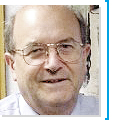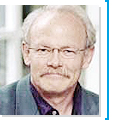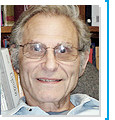Speakers
-

Anne Cutler
Max Planck Institute for Psycholinguistics, The NetherlandsOur knowledge of the native language starts with listening. In fact the relative success of infant listeners at solving the tasks presented by the speech input they hear turns out to be a direct predictor of their language skills during later development. The more experience we accrue with our language, the more this experience shapes the way we listen to speech, making listening optimally efficient (for the native language! Not necessarily for other languages!). Cross-language comparison shows that at more advanced levels of language processing ability the refinement of this process can even mean overturning constraints used, perhaps universally, in infancy.
-

Tim Shallice
SISSA (Scuola Internazionale Superiore di Studi Avanzati), Italy and Institute of Cognitive Neuroscience, UCL. UKThe control of thought: the organisation of supervisory processes
It is generally accepted that prefrontal cortex contains systems that modulate or supervise online processing systems, but how might such a supervisory system be organised? In recent years it has been popular to view it as having a hierarchical structure internally. But are there in addition qualitative differences between different regions of prefrontal cortex? In this lecture neuropsychological findings will be discussed which point to a 4-way cognitive division between energising (or cognitive effort) functions (predominantly medial), task-setting functions (predominantly left lateral), active checking functions (predominantly right lateral) and maintaining on-task functions (orbital). The basic division is derived from a variety of reaction-time paradigms but memory retrieval and problem-solving paradigms will also be considered.
-

Ron Mangun
Center for Mind and Brain of the University of California. Davis, USAThe Mind’s Eye: Neural Networks for Focused Attention
Attention involves powerful top-down mechanisms for the control of information processing in the brain, including specialized systems in the frontal and parietal cortex. These networks for attentional control are sensitive to momentary goals, enabling flexibility in behavior under changing conditions. This lecture will describe how attentional control networks influence early visual processing, how such interactions are modulated by uncertainty arising from stimulus-response conflict, and how attentional control networks fail in disorders of attention. Findings from human functional brain imaging and electrophysiology will be described to provide high spatial and temporal resolution information about attentional mechanisms. Cross-species studies in animals will show how cortical control and sensory networks may interact via mediation by subcortical neural systems.
-

William Marslen-Wilson
MRC Cognition and Brain Sciences Unit, Cambridge, UKLanguage from the inside: Neurocognitive substrates for speech comprehension
Until the mid-1990s, the construction of explanatory accounts of human language had to be conducted “from the outside”, in terms of the many ways that language behaviour could be observed, measured, and described. These data fundamentally underdetermine the properties of the underlying neurocognitive systems that support human language function. Modern neuro-imaging techniques offer us, for the first time, the possibility of studying language “from the inside” – that is, by (relatively) direct observation of these underlying neural systems and their spatiotemporal dynamics. The task of the future science of language will be to reconstruct current accounts of language function in more direct neurocognitive terms, and to incorporate the broader neurobiological framework within which human language has evolved. The talk will illustrate some steps in this direction, focusing on processes of speech comprehension.
-

Jay McClelland
Center for Mind, Brain and Computation. Stanford University, USADecision Neuroscience: How Rational is the Brain?
Decision Neuroscience considers how humans an non-human animals combine prior probabilities, reward values, and stimulus uncertainty to make decisions in real time. Some researchers in this area seek to characterize the brain as an optimal decision making system, combining information in a way that maximizes rewards. However, it is clear that optimality breaks down under some conditions, and there are large individual differences in the degree to which optimality is achieved. This talk will consider how optimal human and animal decision makers really are, and whether future research will find ways in increase the degree to which they can achieve a good approximation to optimality.
-

Michael Posner
University of Oregon and Sackler Institute, USAOPENING CEREMONY TALK: Evolving Attentional Networks and the Development of Self Regulation
This talk reviews studies examining the developmental course of the attention networks during infancy and childhood and the neural mechanisms underlying their maturation. The capacity to orient attention to external stimulation is present in non human animals and in infancy, although aspects related to the voluntary orientation improve during childhood. Executive attention while present in infancy shows a strong developmental course during the preschool years. Its mechanism show important evolutionary change. The shift from control by orienting to control by the executive networks marks an important transition during early development. The talk considers the role of parental involvement in relation to genetic effects in shaping this transition.
PUBLIC TALK: Education Shapes the Infant Brain
Formal schooling is usually thought to start at 5-6 years of age, but of course learning begins much earlier. Shaping of brain networks related to language, arithmetic and self regulation begins in infancy.
Experimental studies reveal how brain networks change with early experience and how these changes influence learning during the school years. Parenting and genes interact to determine the attention and behavior of the child. These new findings suggest important roles for parents and society in the success of children.
